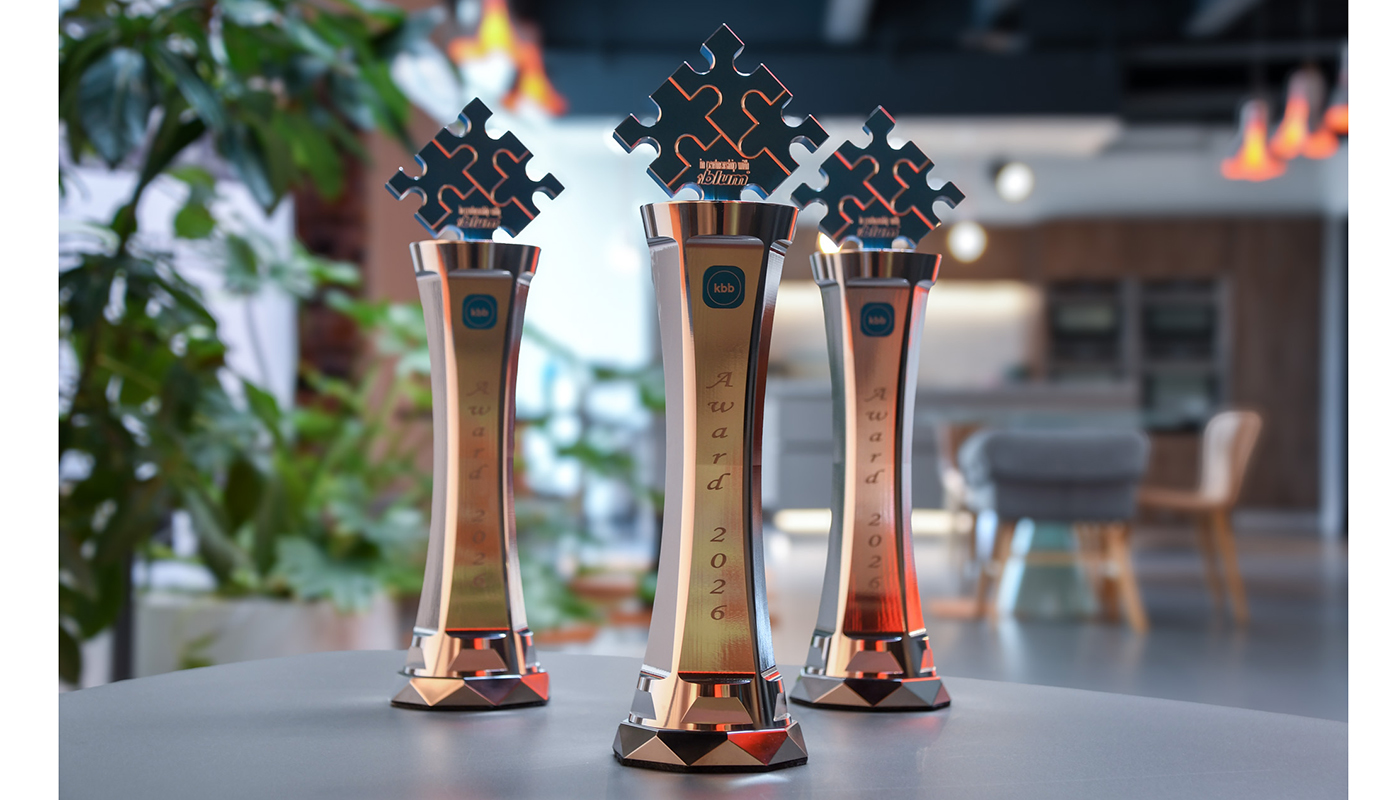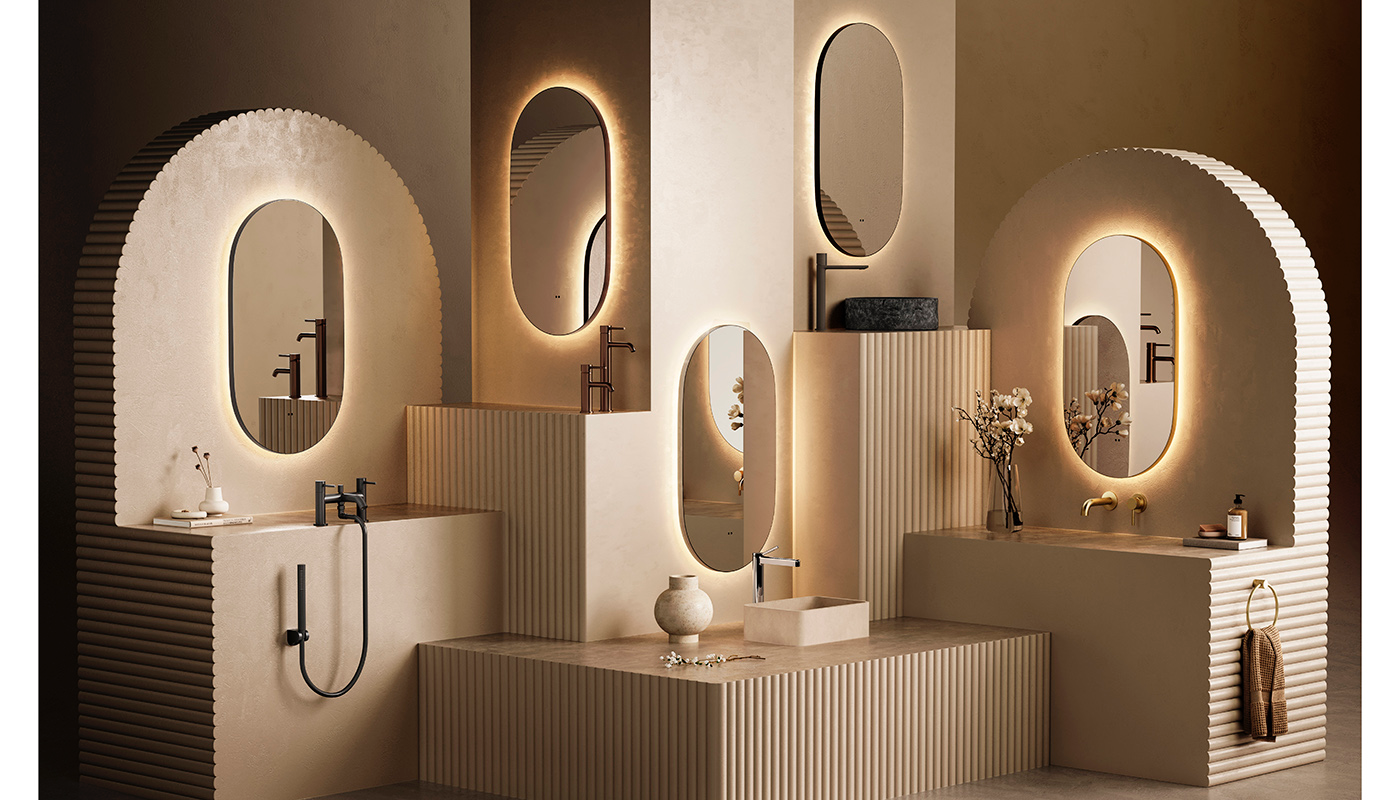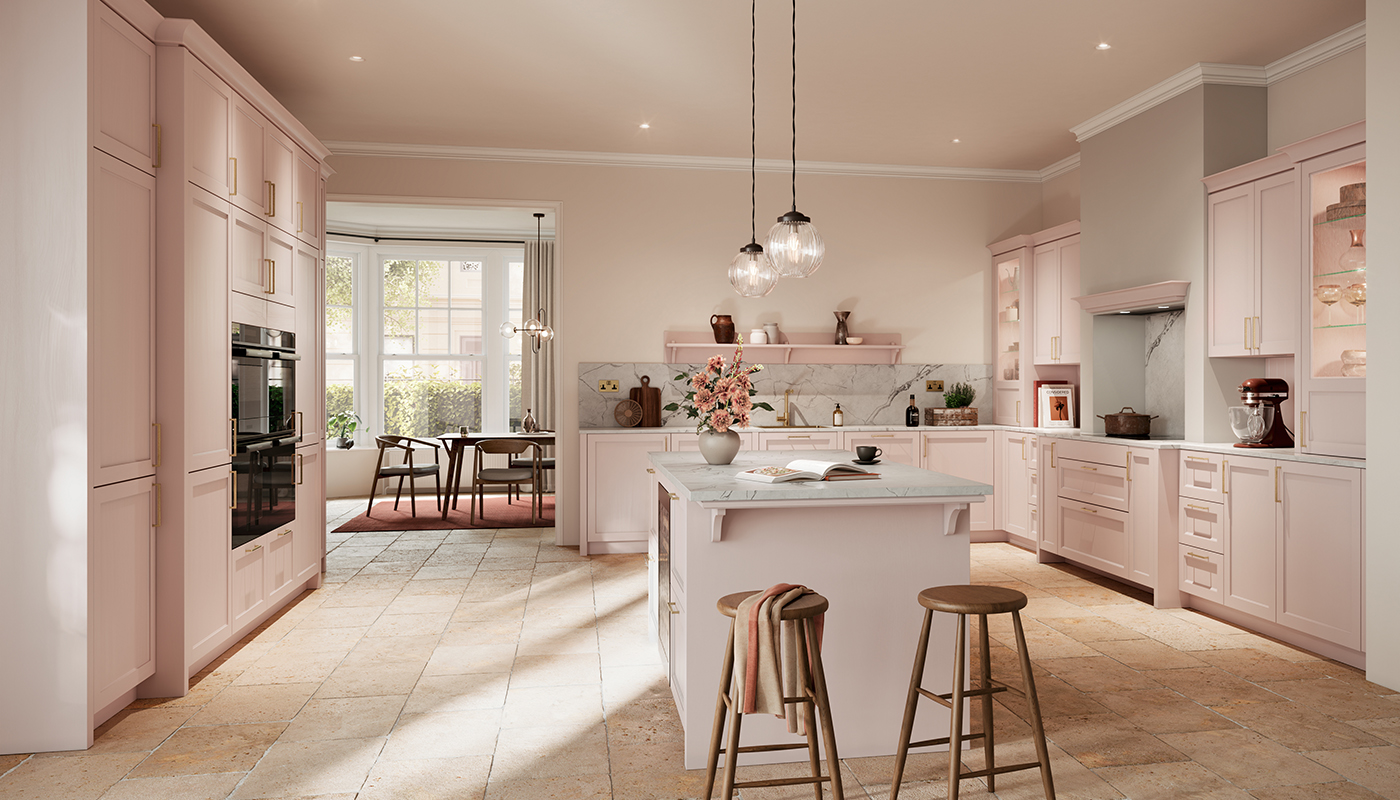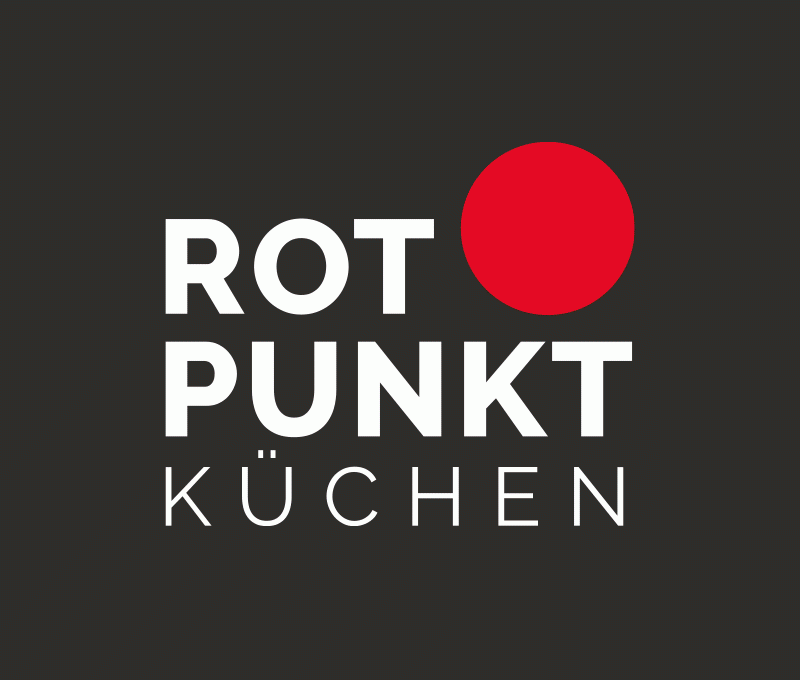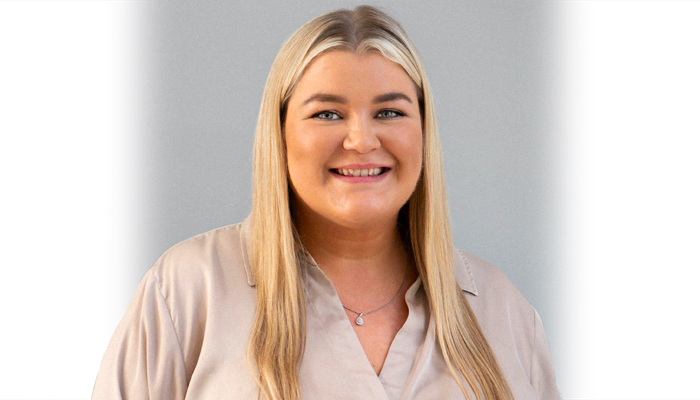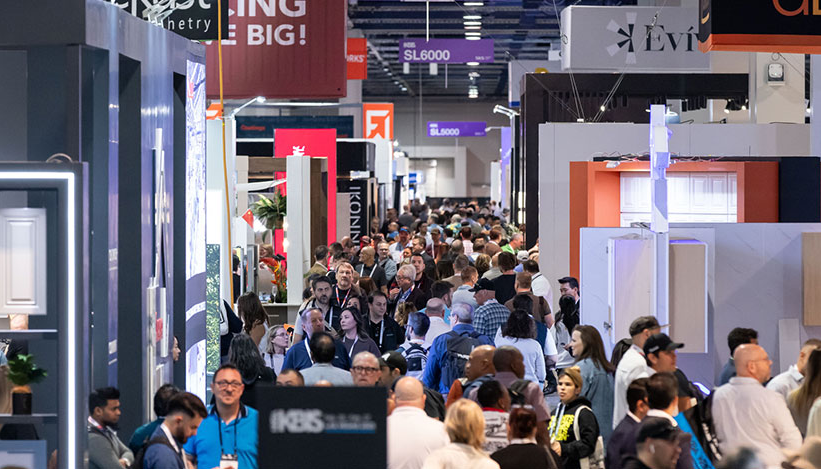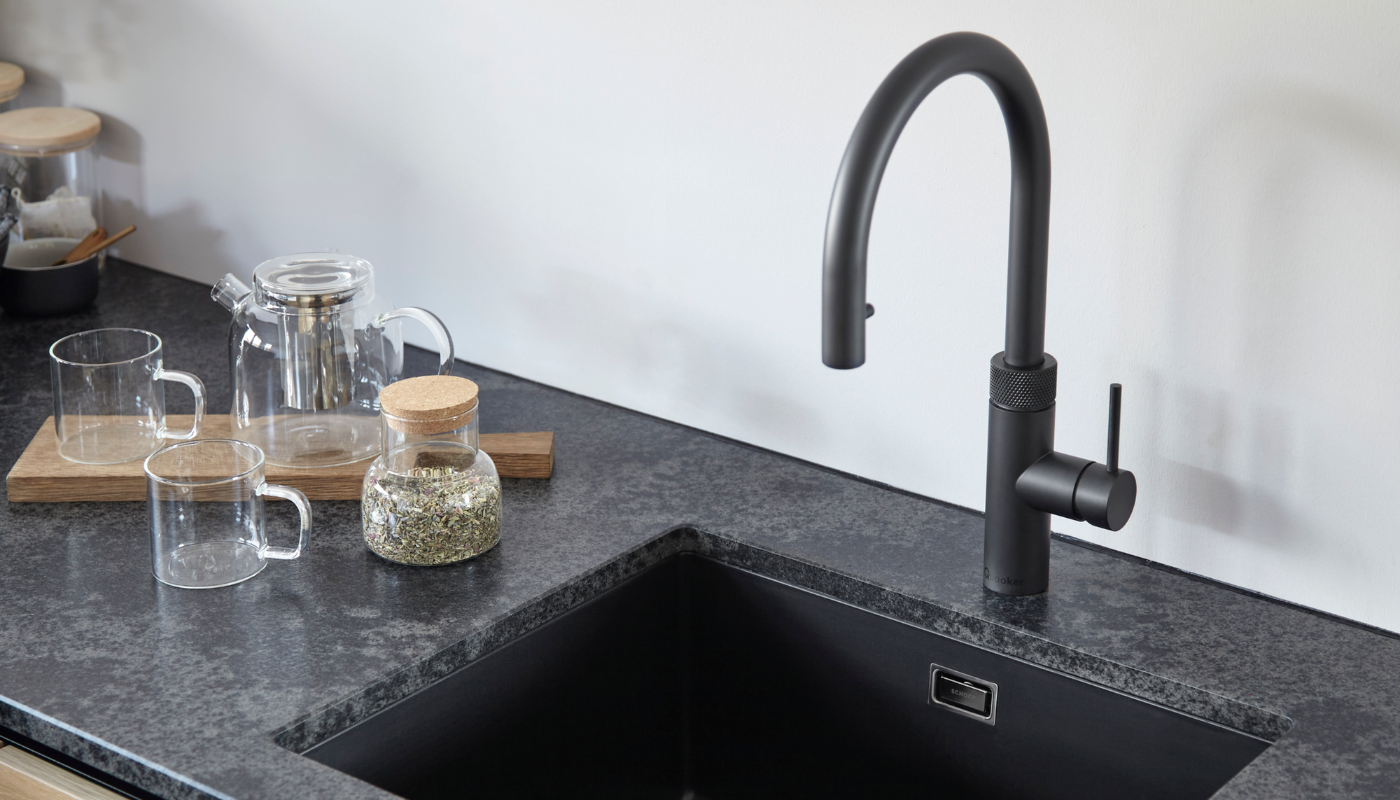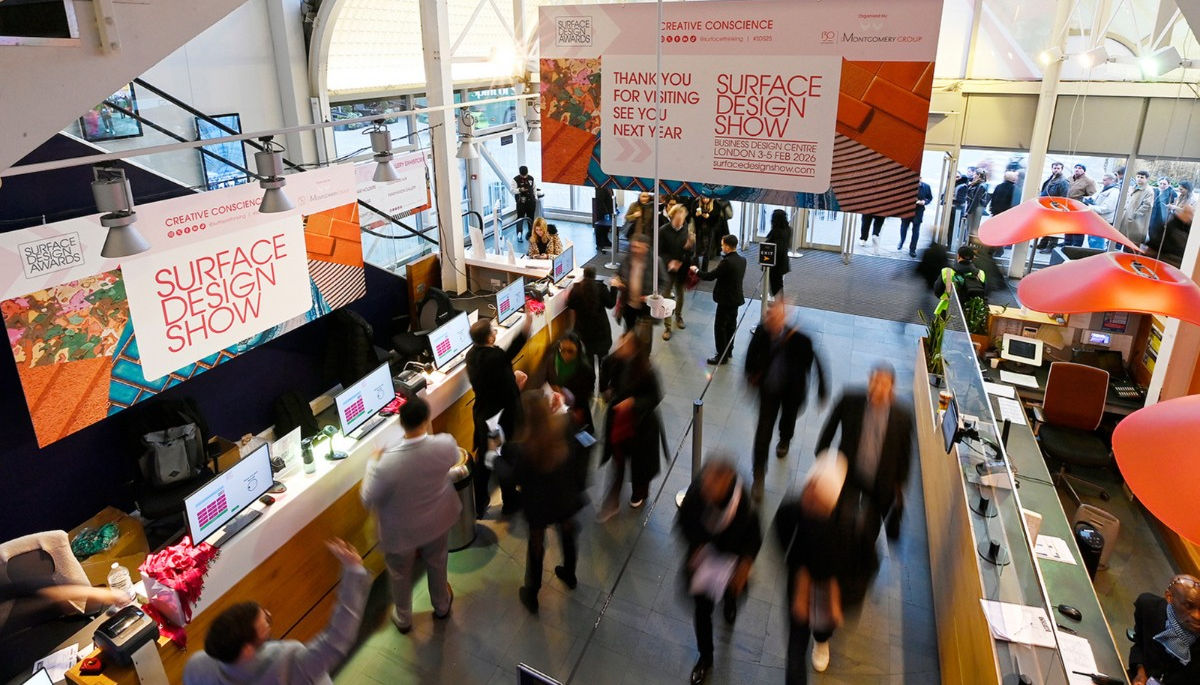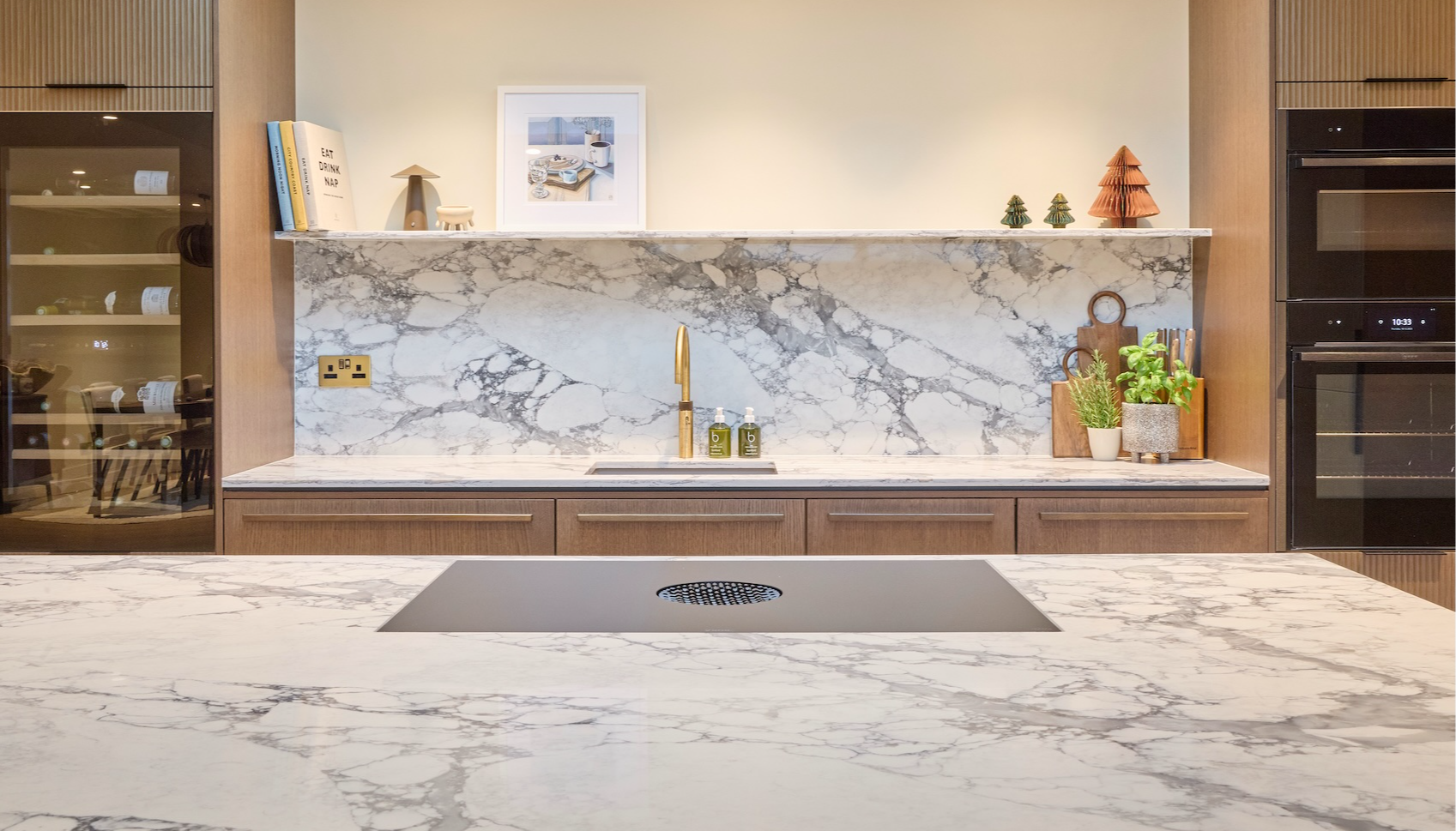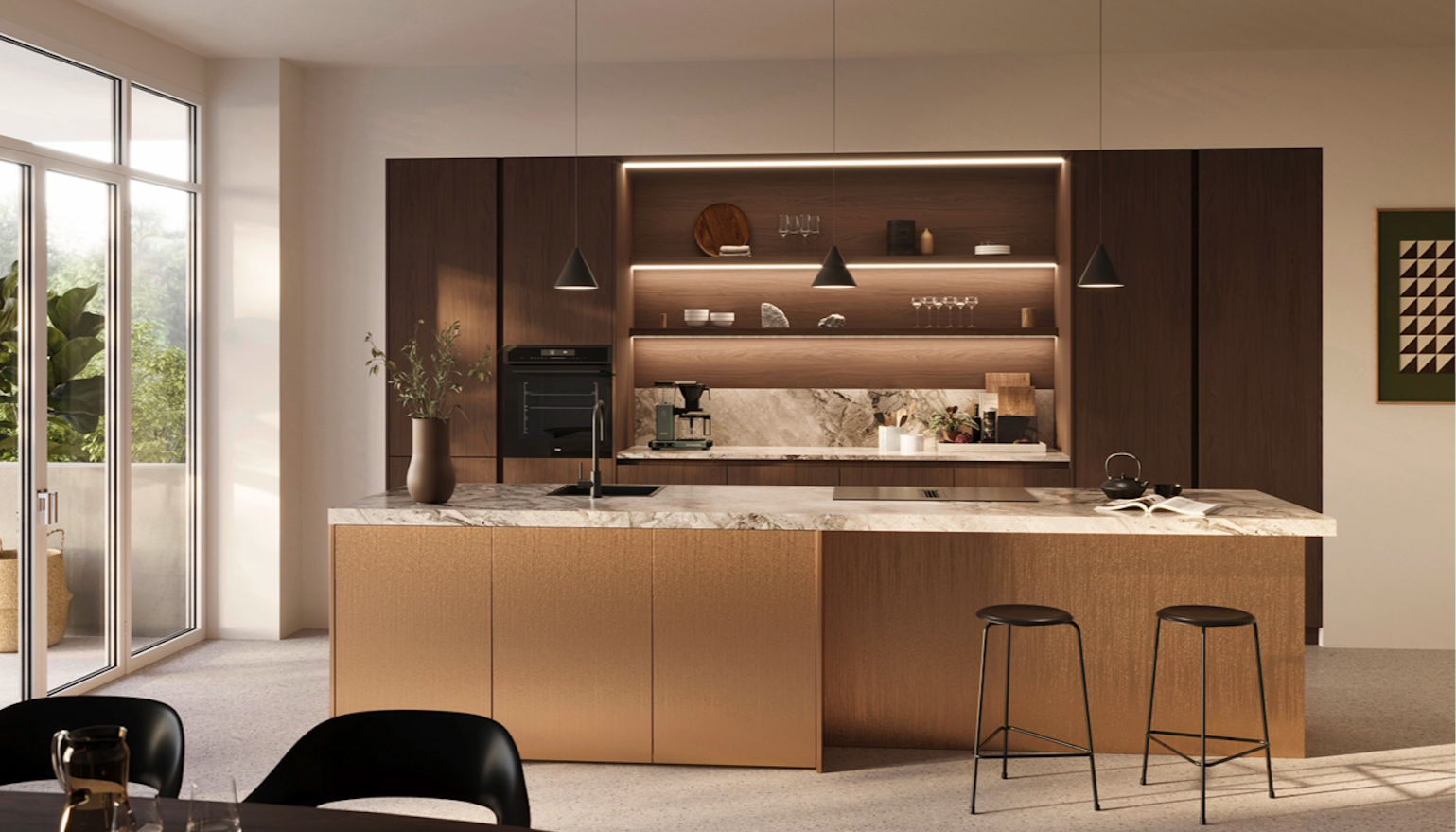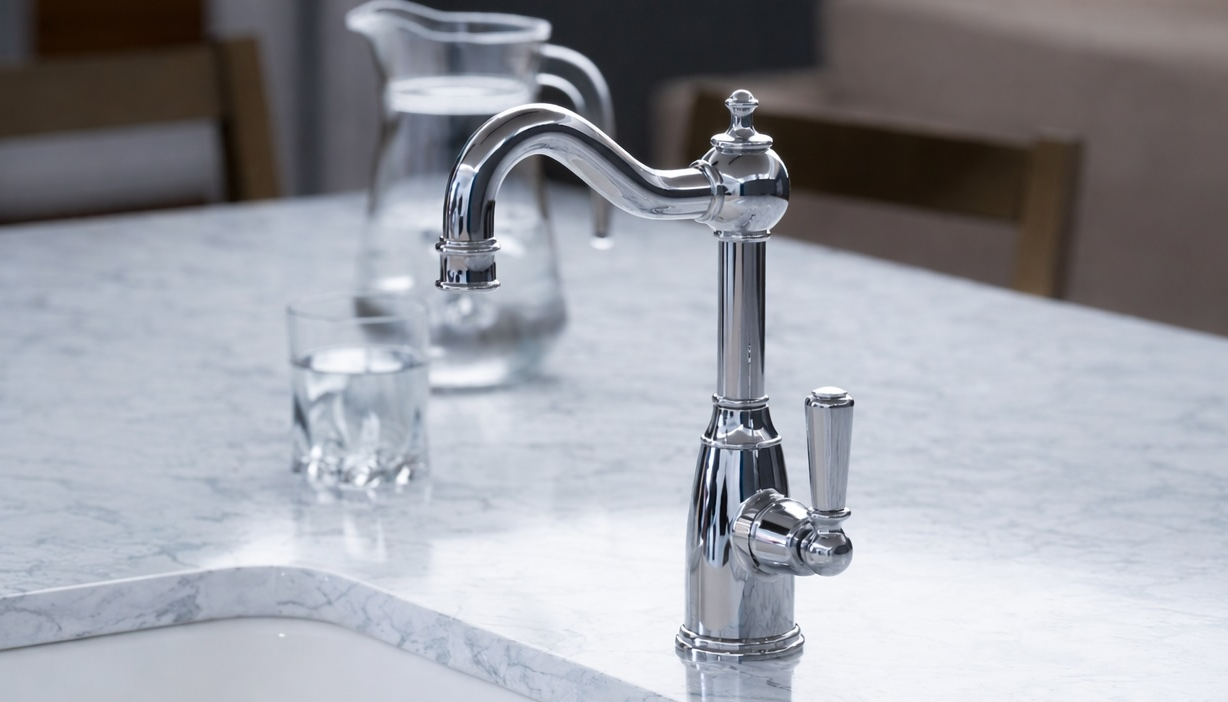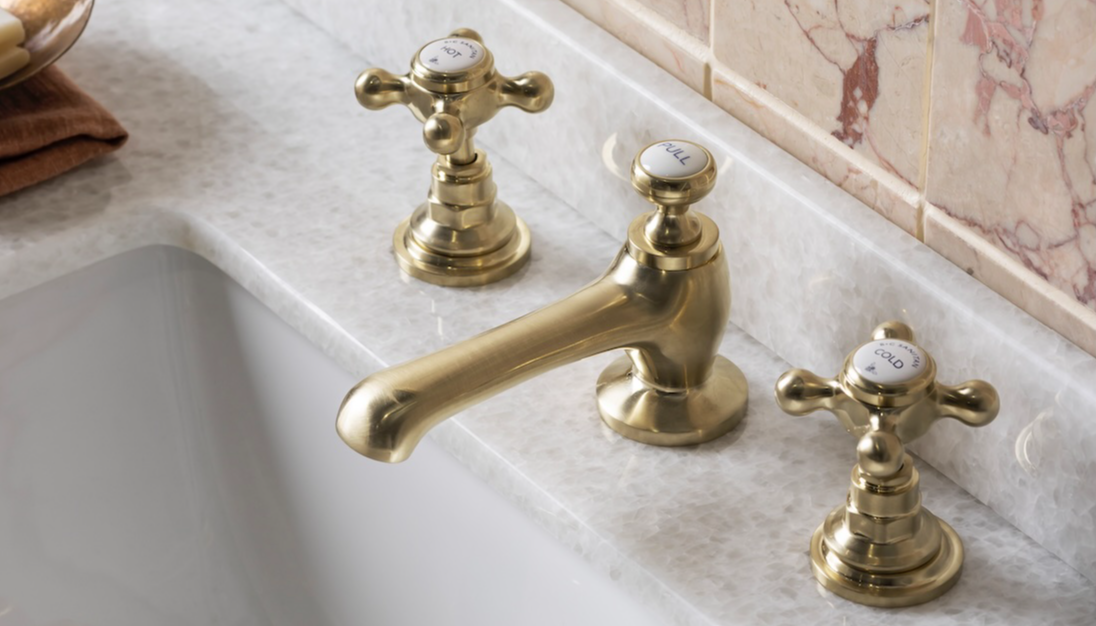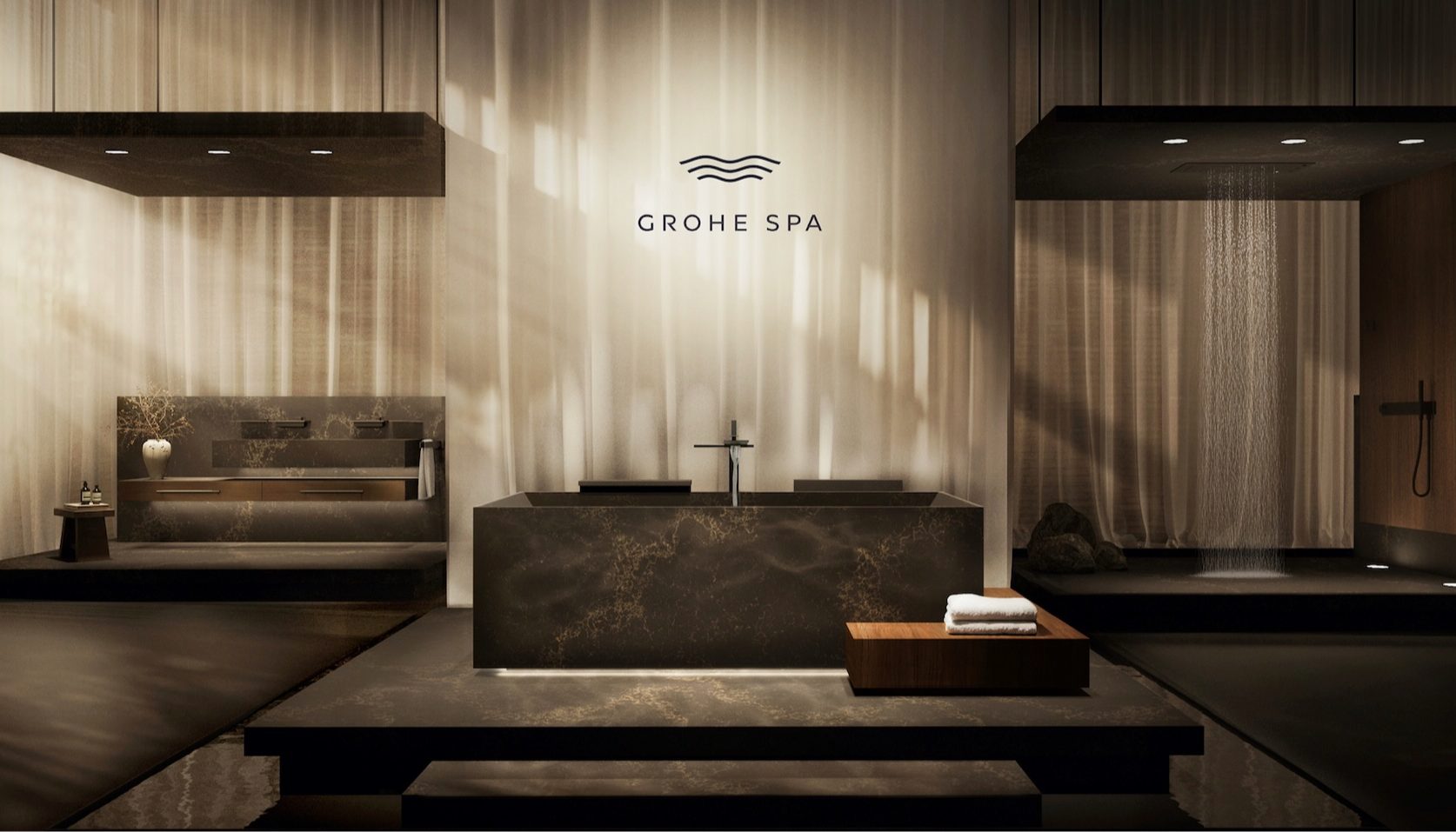Why top designers are turning to porcelain for contemporary surface solutions
Thu 11th Sep 2025 by Clare Howcutt-Kelly
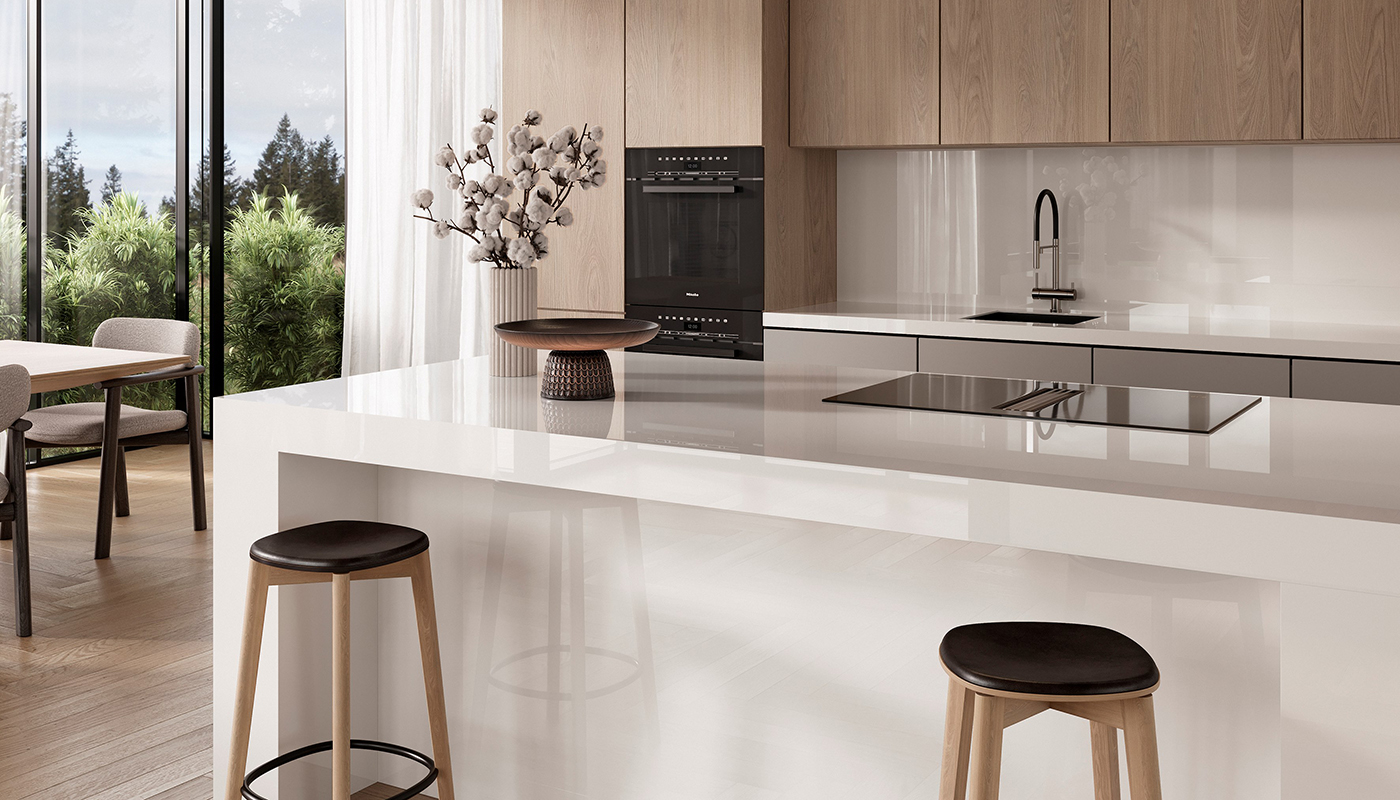
Why top designers are turning to porcelain for contemporary surface solutions
As a surface for application in kitchens and bathrooms, porcelain has been rapidly gaining popularity and is starting to muscle in on quartz’s share of the market – Clare Howcutt-Kelly investigates.
Porcelain is a high-functioning material that, once installed, needs very little attention, is scratch and heat resistant and is low in porosity. Many customers dream of quartz and natural stone but don’t always understand that it requires additional maintenance. Porcelain can replicate the pleasing characteristics of stone including veining and pattern and high-quality printing makes it hard to distinguish between real stone and porcelain.
A research paper from German consultancy company Titze entitled Worktops in Europe (published in 2023), revealed that porcelain worktops are “predicted to experience a substantial increase in sales, with a projected 46% growth rate from 2022 to 2030.” This report analysed surface market trends across Germany, Austria, Switzerland, Netherlands, Belgium, Great Britain, France, Italy, Spain and Poland.
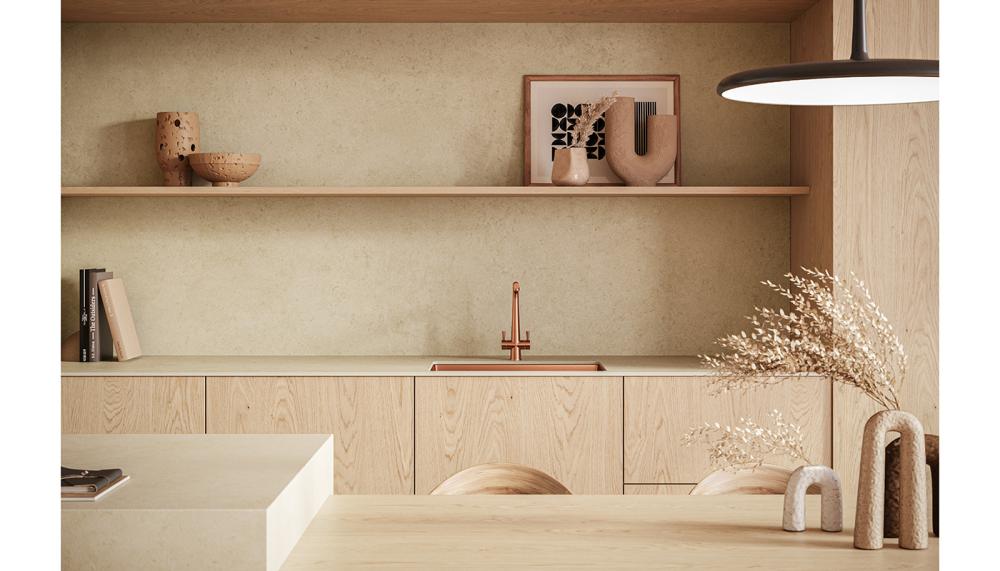
This trend is echoed by those in the UK KBB sector from manufacturers to fabricators. Max Cunningham of Rock Revelations in Northamptonshire has definitely noticed a shift. “It used to be that we sold around 60% quartz and 40% Dekton. Now, it’s the other way round,” he says.
What is it about porcelain that makes it so popular? Cunningham explains: “It’s a consistent material – and is perfect in the kitchen environment due to its heat-resistant properties. We get around 30 enquiries a day through our Dekton Surfaces website with black, grey and marble effects being the most popular.” Atlas and Infinity brands are also popular with Rock Revelations’ customers.
There are a handful of major players operating in the porcelain sector in the UK; all manufactured in Europe. Spain offers Dekton by Cosentino, Xtone Porcelanosa and Neolith, while Laminam is from Italy.
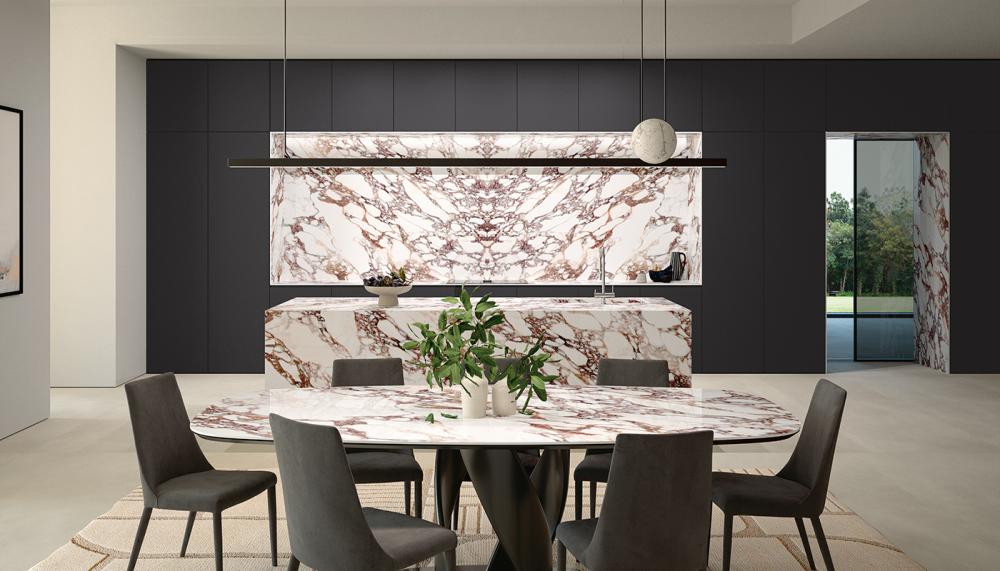
While these surfaces share certain qualities, they all have unique selling points – Dekton is ultra compact, Xtone is sustainable, Neolith is made from natural materials and Laminam is best known for its large-format slabs. In the UK, 20mm is the preferred thickness for the majority. All brands offer a plethora of design choices in varying colourways
Dekton has more than 60 colours across its collections and a variety of finishes (polished, matte, velvet, and textured matte) and thicknesses from 4mm to 30mm. The XTONE line from Porcelanosa offers more than 20 collections and within that, various tones and finishes. Laminam has 130 different colour and texture options across various collections, finishes, effects, and sizes – and Neolith has 50 colours with distinct collections, finishes and thicknesses.
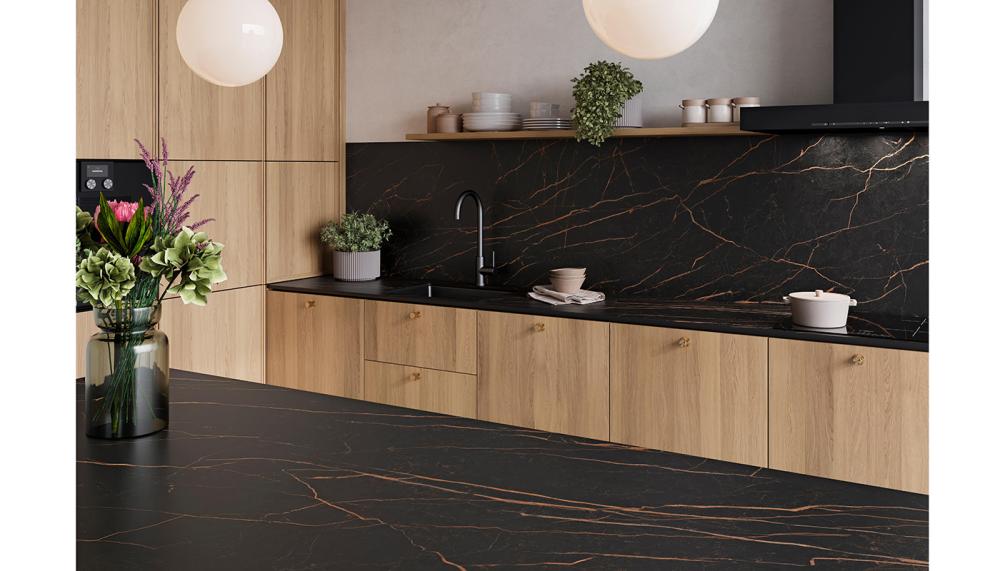
These brands are constantly evolving and expanding product lines at a rapid rate with Neolith adding a further 5 new products this summer including silk finish Taj Mahal, Crème, Azure, and Mamba for countertops and a hero product, Neolith Lux – the brightest white in the entire product offering with a polished finish. It’s believed that Lux will be a popular choice with designers and homeowners seeking a more pared-down, timeless (rather than purely trend-led) look.
One of the main reasons these key brands have such a stronghold in the UK is that serious investment goes into training programmes including workshops, seminars and even factory tours and the entire supply chain, including designers and fabricators, can benefit from targeted information; amplifying the message to better inform the end user.
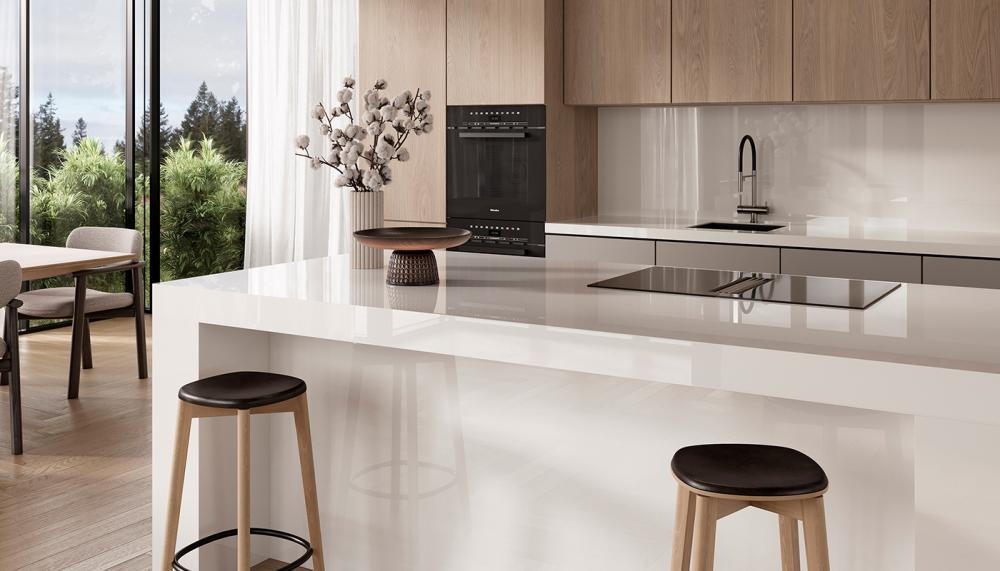
Caesarstone, best known for its quartz products, entered the porcelain market in 2022 and is reporting a rise in sales, too. Jonathan Stanley, VP of marketing & customer service at Caesarstone UK & ROI, says: “The porcelain market is expanding, and this material is finding favour with a lot of K&B retailers – we are seeing sales of Caesarstone porcelain rise rapidly year on year, fuelled both by kitchen and bathroom renovations, and also specifications in outdoor kitchens, for furniture, and for flooring and wall panelling applications.”
He adds: “Porcelain’s ability to create bolder designs is also contributing to its popularity, as dramatic and heavily veined surfaces are having a moment in interiors. This demand for striking looks allows homeowners and designers to experiment with unique patterns, colours, and textures, making porcelain an appealing choice. Whether you prefer a sleek, industrial look or a softer, more natural atmosphere, porcelain provides a wide range of aesthetic options. In addition to its design versatility, porcelain is also resistant to heat, sunlight, UV and extreme weather conditions, making it suitable for outdoor use for those looking to recreate a stylish and practical look in their outdoor kitchen.”
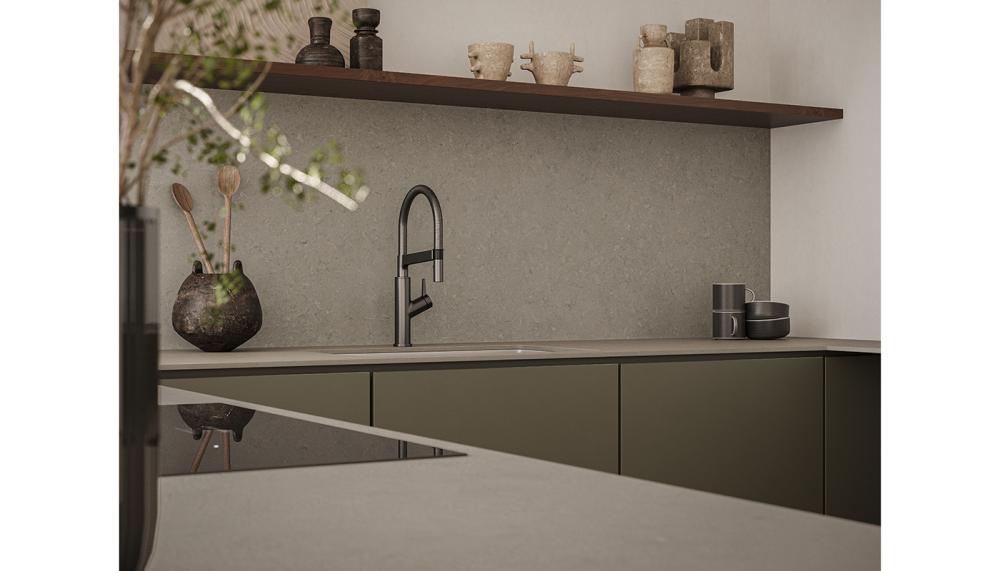
Ceramics giant, RAK Ceramics, headquartered in the United Arab Emirates, has also seen rapid growth within its porcelain portfolio. Alvin Biggs, MD at RAK Ceramics UK, comments: “The latest surface trends are seeing striking, cost-effective porcelain become the go-to surface solution for kitchen worktops and splashbacks as well as walls and floors. Seamlessly offering the look of natural stone for less, porcelain is incredibly durable and infinitely versatile, making it a stylish and practical choice.
"Sales of our porcelain wall and floor tiles have always been strong but we’ve really seen demand for our porcelain worktops and splashbacks soar in recent years. Scratch, stain and heat resistant, porcelain is incredibly easy to clean, which is a big advantage for today’s consumers who are looking for super-stylish, low-maintenance and family-friendly surfaces.
"Porcelain’s affordability when compared to solid natural stone surfaces is also helping to boost its popularity, while the material’s eco-credentials are also extending its appeal.”
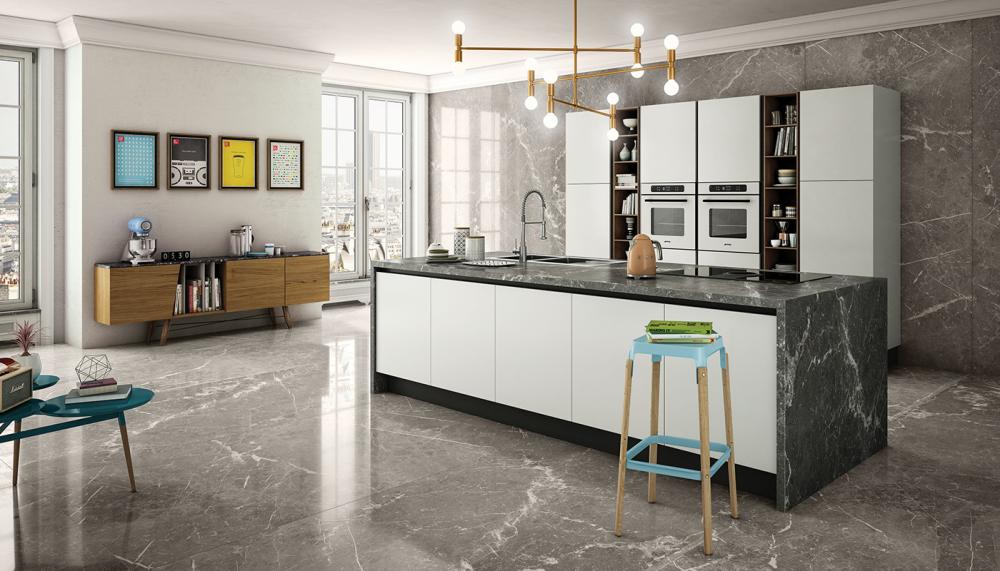
For an overview of how porcelain is performing in the showrooms, take luxury tile and stone specialist Lapicida, with its stores in Yorkshire and London. Its porcelain offer is extensive and showcases some of the most opulent designs inspired by natural stone. The range includes Mirrored Marble, which can be used in a random formation for an authentic effect, or bookmatched or quartermatched to create striking symmetrical designs. The look is effortlessly premium and unlike genuine marble, only minimal upkeep is required.
Low-maintenance with endless possibilities, porcelain is a blank canvas that will fit into any home and offers much potential for the entire supply chain from the manufacturer to the end user.
Clare Howcutt-Kelly is the communications officer for the Worktop Fabricators Federation (WFF) and can found on Instagram @clarehowcuttkelly
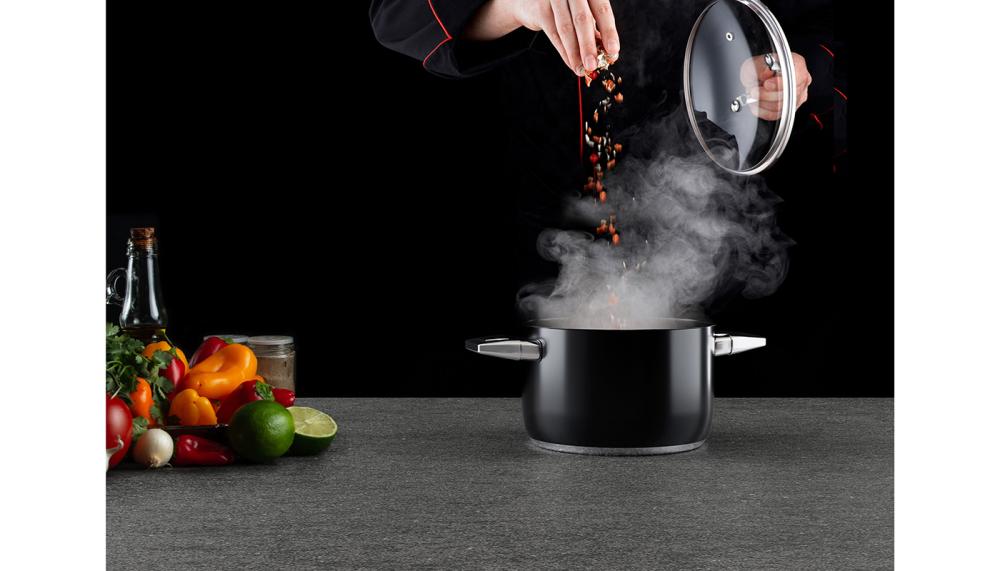
Tags: insight, features, porcelain, neolith, caesarstone, laminam, porcelanosa, rak ceramics, lapicida, cosentino, kitchens, bathrooms




